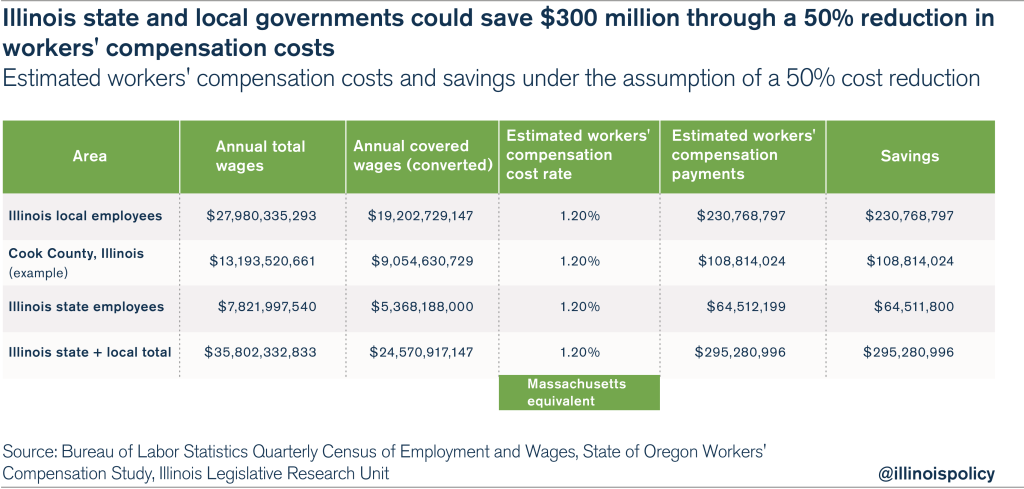Comptroller confirms workers’ compensation costs are a budget issue
Poorly written workers’ compensation laws cost Illinois government hundreds of millions of dollars each year.
Throughout Illinois’ budget stalemate, people such as House Speaker Mike Madigan have scolded reform-minded Gov. Bruce Rauner for bringing “nonbudget” issues into the political discussion.
But Illinois Policy Institute research recently showed how one of Rauner’s demands – workers’ compensation reform – is a direct budget issue, a reality confirmed today by Illinois Comptroller Leslie Munger.
“There are some things in the governor’s reform agenda that are in fact budget items,” she said in a press conference.
“I would say workers’ comp is one of them, as an example. In our state, right now, it would save our state on our own expenses [$300 million-plus] a year if we had reduced expenses in that. That is a budget item.”
On Aug. 30, the Illinois Policy Institute published research showing the impact of poorly written workers’ compensation laws on government coffers.
If the state made the legislative changes necessary to reduce workers’ compensation premiums to Massachusetts levels, it would save Illinois’ state and local governments close to $300 million.
Those savings could be captured entirely by the state through a commensurate reduction in state funding of local governments through the Local Government Distributive Fund. This estimate does not take into account the millions of dollars in annual savings that would come from reduced costs in public construction work, nor does it include the increased tax revenue that would flow into government coffers as a result of business expansion and greater economic growth.
“We have got to get a growing, vibrant economy to help get our revenues and our state back on a strong track,” Munger continued. “Part of that requires some of the reforms the governor is talking about. … [Those reforms] will help our businesses stay here.”
Munger is right to point to the private sector, where the effects of the state’s wrong-headed workers’ compensation laws are even clearer.
“When I have an employee in Illinois who can get a paper cut on their finger, get two stitches, no impact and go right back to work … and that employee can go find an attorney in Cook County to take his case, that’s unnerving to us,” Flaska said.
“I can go to Indiana and pay to have that finger stitched up and that’s the extent of our cost. That’s a big differential when you have 250 people that could all get a paper cut.”
Workers’ compensation costs can have significant effects on public and private bottom lines alike. And as Munger correctly points out, they’re something Springfield lawmakers need to take seriously.

